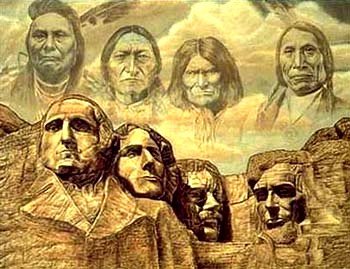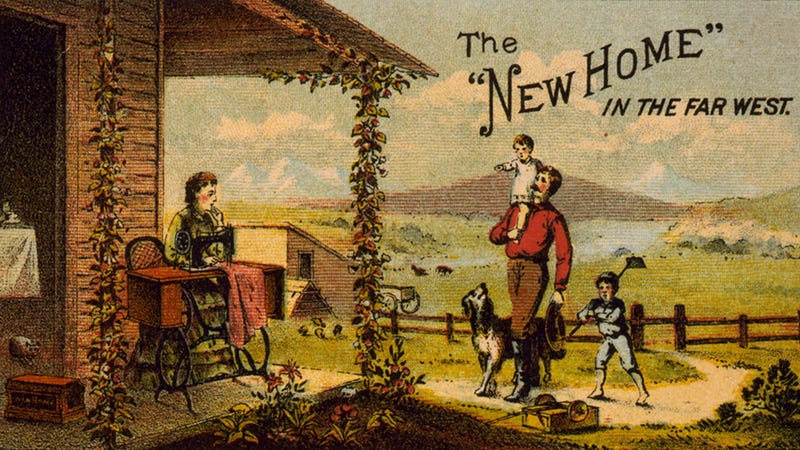Introduction
Task
Here are the different questions you will need to answer throughout this webquest:
1.What is a pioneer and what is a settler?
2. Did America greet immigrants nicely? What was the Homestead Act of 1862? What did people have to do?
3.On which principles was this new nation based on?
4.What is the Manifest Destiny?
5. Who was Christopher Columbus? What did he do? What effect did it have?
6. How was the relationship between the pioneers and the Native Americans? Why
Process
1.What is a pioneer and what is a settler?
2. Did America greet immigrants nicely? What was the Homestead Act of 1862? What did people have to do?
3.On which principles was this new nation based on?
4.What is the Manifest Destiny?
5. Who was Christopher Columbus? What did he do? What effect did it have?
6. How was the relationship between the pioneers and the Native Americans? Why
Evaluation
American pioneers are any of the people in American history who migrated west to join in settling[1] and developing new areas. The term especially refers to those who were going to settle on any territory which had previously not been settled or developed by European, African or American society. However, the territory was inhabited[2] by Native Americans. The pioneers are the first settlers.
America was not a land that was particularly soft-hearted[3] towards newcomers, but everyone believed that each should have a fair chance[4] regardless of his origin. The newcomers quickly learned their way about and soon felt at home. The Homestead Act of 1862 provided them, as well as many other pioneers, with an opportunity to acquire[5] land and establish family farms. The tough prairie seemed a golden opportunity and they conquered it by hard work.
The world was to be made a better world by the example of a democracy in which there was freedom of the individual, in which there was vitality, mobility, productivity and variety.
Manifest Destiny, a phrase coined in 1845, expressed the philosophy that drove 19th-century U.S. territorial expansion. Manifest Destiny held that the United States was destined—by God—to expand[6] its dominion[7] and spread[8] democracy and capitalism across the entire North American continent. It was their mission to civilize the savages (Native Americans) to teach them how to be civilized and to Europeanise* them until they lived like them.
[1] To settle : to occupy.
[2] Inhabited : populated by.
[3] Soft-hearted : nice/easy to people.
[4] A fair chance : an equal chance.
[5] Acquire :obtain
[6] Expand : develop.
[7] His dominion : his power/control.
[8] Spread: advance.
Christopher Colombus was an Italian explorer and he discovered the "New World" of the Americas on an expedition financed by King Ferdinand of Spain in 1492. He has been cre dited[1] for opening up the Americas to European colonization as well as blamed for[2] the destruction of the native peoples of the islands he explored. Ultimately, he failed to[3] find that what he was supposed to: a new route to Asia and its the riches. Columbus’ expeditions set in motion the movement of people, plants, animals, diseases[4], and cultures that greatly affected nearly every society on the planet. The horse from Europe allowed[5] Native American tribes[6] in the Great Plains of North America to change from a nomadic to a hunting lifestyle. Wheat[7] became a main food source for people in the Americas. Coffee from Africa and sugar cane from Asia became major cash crops[8] for Latin American countries. And foods from the Americas, such as potatoes, tomatoes and corn helped increase the European populations. The Americas were forever changed and the once vibrant and rich cultures of the Native American civilizations were changed and lost, denying[9] the world any complete understanding of their existence.
In the first settlements, relations between the natives and the pioneers were friendly. Native American culture valued trade[10] as a means of uniting two tribes and doing cooperation, so the tribes gave food, clothes, and shelter to the settlers in exchange for metal tools like knives and hatchets. The Native Americans also taught the settlers to be self-sufficient[11]. As the European settlements began to grow and take more and more Indian lands for themselves, relations became more complicated. Cultural differences became more insurmountable as British refused to consider them as anything else than uncivilized savages. Large numbers of Native Americans died from European diseases. The English began to demonize[12] the natives in an attempt to excuse their own behaviours (enslaving[13] tribes, stealing land, taking their women as concubines, and over-hunting their food source: the buffalos). The non-respect of the treaties made with the Indians made the relationship more tensed.
[1] To be credited for : to be known/ famous for.
[2] Blamed for :criticized for
[3] Failed to ≠succeeded to.
[4] Diseases : sicknesses.
[5] Allowed ; permitted.
[6] A tribe : une tribu.
[7] Wheat : du blé
[8] Crops : productions.
[9] Denying ; preventing.
[10] Trade : exchanges.
[11] Self-sufficient : autonome.
[12] Demonize :diabolize/criticize.
[13] Enslaving ; imprison.
I




